An additional test participants had been asked if they would acknowledge which they utilized drugs on a resume; a different sort of collection of participants acting as potential companies had been expected who they’d instead employ, somebody who admitted making use of medications, or somebody who selected to not ever respond to.
Despite the fact that just 23 % of respondents stated they would acknowledge utilizing medications, potential employers discovered drug users hireable 62 percent of times, versus only 45 per cent of that time period for many who decided to not answer that concern.
Needless to say, such honesty has its restrictions, John hastens to include. “You may not desire to say you will be a heroin addict, ” she says. “But if you’re wanting to determine whether or not to conceal or expose information, people usually have a knee-jerk response which they should never state something bad about on their own, once they may be best off being honest. “
A job application, a dating profile, or a Facebook page-starting with the fact that they don’t think it’s anyone else’s business on the other side, there may be perfectly benign reasons why people might withhold information-from. In this full situation, it will help for observers to keep yourself updated that hiding information simply an admission of shame.
“As observers, we possibly may be susceptible to opportunities that are missing form friendships or employ individuals by unfairly inferring that these are generally untrustworthy, ” she says. “there could be totally innocuous reasons some one might wish to keep information that is personal. “
Comprehensive Disclosure
Another recent HBS study found differently while John’s study shows that people think badly of people who withhold information.
In Isn’t Any News (Regarded As) Bad Information? An Experimental Investigation of Information visibility, Assistant Professor Michael Luca, additionally from the NOM unit, discovered that individuals are more likely to give other people the advantageous asset of the question once they neglect to completely reveal bad news about themselves. While regarding the face from it, Luca’s findings appears to be to contradict John’s paper, the truth is, the 2 studies complement one another, showing so just how delicate could be the method we plan information.
Luca, whom works a doors that are few the hall from John, has studied the methods for which businesses hide information from consumers-sometimes duplicitously. In a past paper about U.S. News & World Report college ratings of MBA programs, for instance, he discovered a good website link between where a college dropped from the positions and exactly how most likely it had been to list that ranking on its web site.
“not in the top 25 programs, company schools with worse ranks become less much less very likely to point out them to their sites, and and many other things and more prone to add other information alternatively, ” claims Luca.
The thing is that in certain full instances maintaining information private can straight damage consumers. After l. A. Needed mandatory hygiene information at restaurants, for example, hygiene rates rose and foodborne health problems dropped.
“simply by disclosing the knowledge, and permitting markets do something, it resulted in an optimistic social impact, ” Luca claims. In this instance, nevertheless, it took the intervention that is direct of to persuade restaurants to show these records which had not been done voluntarily.
Relating to game concept, but, which shouldn’t be necessary. The logic goes such as this: the greatest restaurants or schools should loudly trumpet their the positioning as being a matter of course. Then B-ranked restaurants or heated affairs schools would expose their ratings, to split up on their own through the Cs. The pattern would continue to the C establishments and so forth.
“the idea is the fact that information would unravel, and everybody else nevertheless the really lowest grade might have the incentive to reveal, ” claims Luca.
Despite the fact that concept of “information unraveling, ” but, in truth that is generally speaking not what goes on. When you look at the instance of restaurants, not many voluntarily disclosed their hygiene ratings, even if they certainly were above typical. So that you can test why, Luca, along with Ginger Jin for the University of Maryland and Daniel Martin associated with Paris class of Economics, arranged a easy test they called the “disclosure game. “
